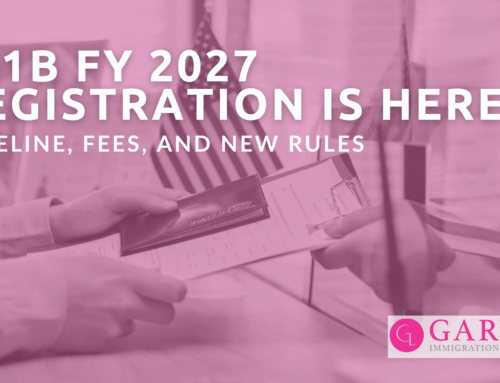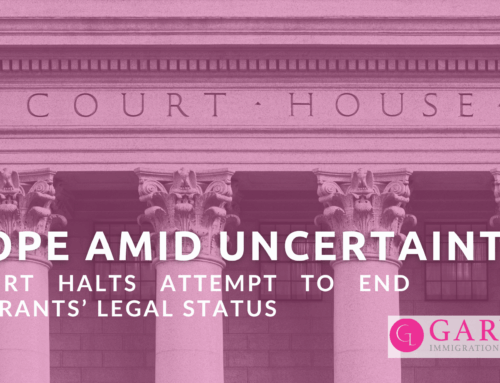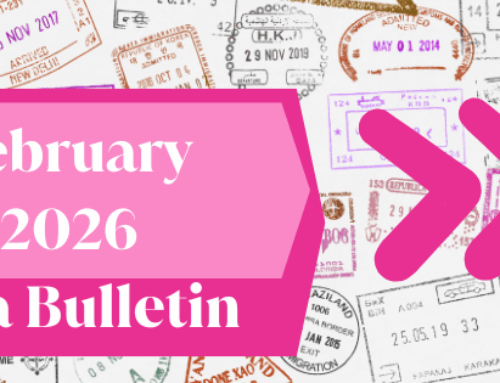The U.S. Citizenship and Immigration Services (USCIS) recently reported a significant increase in H-1B registrations for FY 2024, with a record-breaking number of entries. This surge in registrations, primarily due to multiple entries for the same individuals, has drawn attention to the need for reforms in the H-1B lottery process. While potential changes could improve the selection rate, it is crucial to address the underlying issue of the low annual H-1B limit. This article explores the current scenario, discusses possible solutions, and emphasizes the significance of immigration reforms.
A Substantial Increase in H-1B Registrations:
For FY 2024, USCIS received a staggering 780,884 H-1B registrations, marking a 61% increase compared to the previous year. With an annual limit of 85,000 visas (65,000 regular cap and 20,000 for advanced degree holders), USCIS conducts a lottery when the number of applications exceeds the cap. However, the selection rate for FY 2024 dropped to a mere 14.6% from 26.9% in FY 2023, highlighting the growing competitiveness of the H-1B program.
Multiple Registrations and Unfair Advantages:
USCIS attributes the surge in registrations to multiple entries submitted for the same individuals. While having multiple job offers is lawful, concerns arise when duplicate entries are made to increase the chances of winning the lottery. USCIS has expressed its commitment to preventing abuse and ensuring fairness in the registration process. Each prospective petitioner is required to sign an attestation, and false attestations can lead to denial of petitions and potential criminal prosecution.
Addressing Multiple Registrations and Proposed Solutions:
To tackle the issue of multiple registrations, USCIS may introduce changes to the H-1B lottery and registration process. One potential solution is limiting or orienting the lottery to unique beneficiaries based on passport numbers. This approach would maintain employment flexibility while ensuring a level playing field for all applicants. USCIS already possesses the authority to investigate fraud suspicions regarding job offers, ensuring legitimacy.
The Overlooked Issue: Low Annual H-1B Limit:
While the focus remains on multiple registrations, it is essential not to overlook the more significant problem—the low annual H-1B limit. Out of the eligible registrations for FY 2024, over 75% would have been rejected, even excluding beneficiaries with multiple potential employers. The demand for highly skilled professionals in science, technology, engineering, and mathematics (STEM) fields is consistently high, and the current cap hinders employers from securing the necessary talent.
The Importance of Immigration Reforms:
Reforming the H-1B program and addressing the employment-based green card numbers and per-country limits are crucial steps toward strengthening U.S. competitiveness in the global market. With foreign-born talent playing a vital role in various industries, including technology, it is imperative to create avenues for long-term employment. The argument that H-1B visa holders are “cheap labor” is debunked by USCIS data, showcasing their valuable contributions and competitive salaries.
The surge in H-1B registrations and the prevalence of multiple entries highlight the need for immigration reforms in the United States. While addressing the issue of multiple registrations is important, it is equally crucial to raise the annual H-1B limit to meet the demand for skilled professionals. By creating a fair and efficient system that attracts and retains top talent, the U.S. can enhance its competitiveness, foster innovation, and drive economic growth. Immigration reforms are essential to secure a prosperous future for the nation.
Schedule a consultation with us today to begin your immigration journey.
About the Author
Elizabeth Garvish
Elizabeth L.A. Garvish founded Garvish Immigration Law Group, LLC in 2011 after practicing immigration law in small boutique firms, big law and nonprofits. Elizabeth is a frequent speaker and presenter on entrepreneurship and U.S. immigration topics around the world. She is an active member of the American Immigration Lawyers Association (AILA) and serves on various national committees and is the Past Chair of the Georgia-Alabama Chapter of AILA. Elizabeth is also a certified member of the EO Global Speakers Academy.





